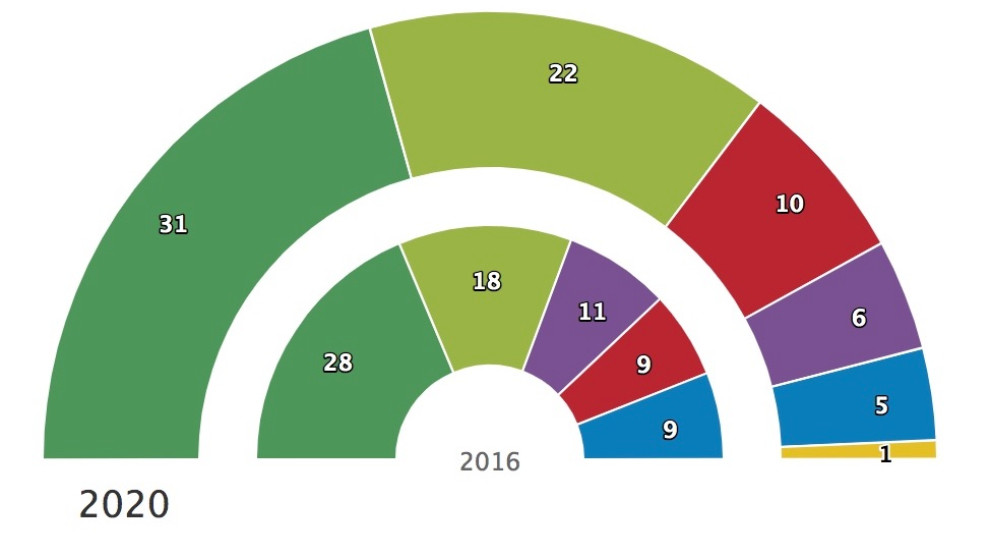Historic and seismic. Two adjectives that well describe what happened in the elections in the Basque Country and Galicia. But there is a third adjective which must be added as it properly qualifies the other two: left. Both in the Basque Country and Galicia in fact the historic and seismic shift has been on the left.
In the Basque Country, Euskal Herria Bildu (EHB), the left and independents (abertzale) coalition has got its best result ever winning 22 seats (4 more than in the previous elections) and 27% of the votes. Together with the much more moderate nationalist party (PNV), the nationalist forces sum a staggering 67% of the vote. Of course, this is an alliance which the PNV does not envisage.
Still it is food for thought. In any case, EH Bildu can look left comfortably as it is leading the left parties and if (unlikely but still, one can always hope!) the Socialist Party would finally wake up in the Basque Country, a left majority government would indeed be possible. The Socialists in fact got one more deputies in the Basque Parliament (reaching 10). Elkarrekin Podemos, the Basque branch of the group led by Deputy Prime Minister Pablo Iglesias, lost more than half its representation in Euskal Herria (from 11 to 6 seats), and it’s the real disappointment of these elections. Yet, together the left parties would get the 38 seats necessary to govern with stability.
Realistically though, it would be the same as always: the PNV will form an alliance with the Socialist Party. So much for taking into account and serve the people’s will. The incumbent Lehendakari (president), Iñigo Urukullo, took his Basque Nationalist Party (PNV) to its best result since 1984, with around 40% of the vote.
The other historic data though, was abstention which reached 47,14%. Even so, EH Bildu gained almost 24,000 votes in comparison with 2016.
The real discordant note for the Basque Country was the election (in the province of Alaba) of a deputy for the fascist and racist right wing party Vox.
Galicia goes left
In Galicia, there was a seismic shift in terms of the left. The advance of the Galician Nationalist Bloc (BNG), materialized at the expenses of the Galician Socialists (PSdeG). Led by 42-year-old Ana Pontón, the Bloc attracted a high number of female voters, according to surveys, and are now the second biggest group in parliament and head of the opposition.
However, the Galician premier Albert Núñez Feijóo, of the conservative Popular Party (PP), secured his fourth absolute majority.














